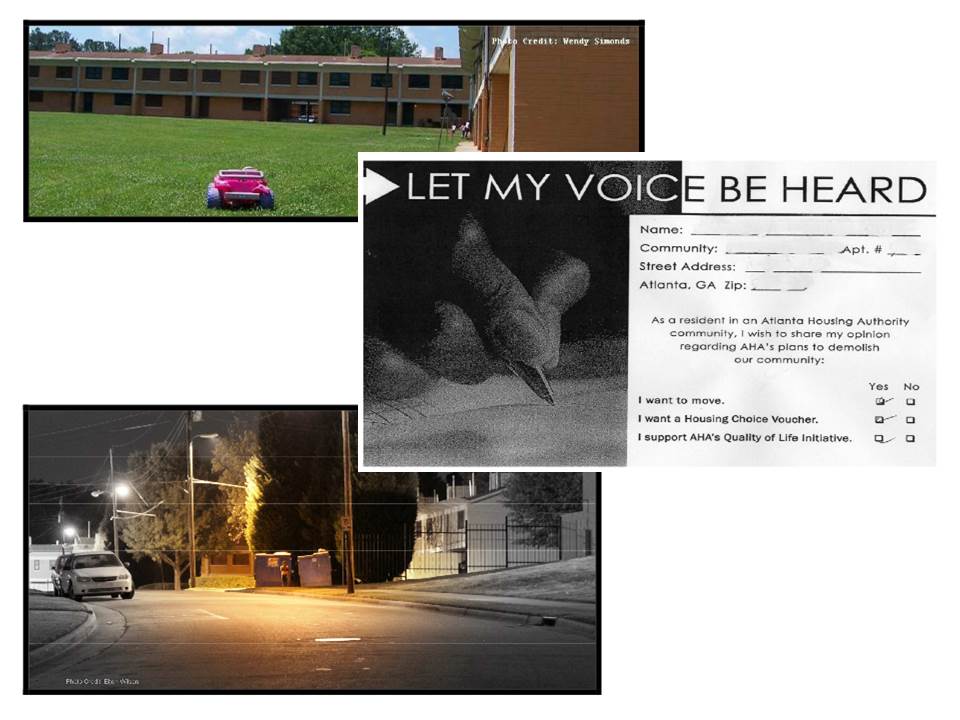GSU Profs and Grad Students researching Atlanta’s Public Housing Transition
 Check out the most recent publications from the ongoing grant-funded Urban Health Initiative research project, headed by Sociology Professors Erin Ruel, Lesley Reid, and Deirdre Oakley, which focuses on the impact of Atlanta’s demolition of public housing on the relocated residents:
Check out the most recent publications from the ongoing grant-funded Urban Health Initiative research project, headed by Sociology Professors Erin Ruel, Lesley Reid, and Deirdre Oakley, which focuses on the impact of Atlanta’s demolition of public housing on the relocated residents:
Ruel, E., Oakley, D. A., Ward, C., Alston, R., & Reid, L. W. (2013). Public housing relocations in Atlanta: Documenting residents’ attitudes, concerns and experiences. Cities, 35, 349-358.
Abstract: “This paper describes the desire to move, concerns of residents being involuntarily relocated from Atlanta’s public housing, and their post-relocation experiences. Using a residential mobility framework, we examined the correlates of desiring to move or desiring to renovate public housing as a function of hard-to-house characteristics, mobility characteristics, and concerns about relocating. Findings indicated that family public-housing residents were more likely to view relocation as an opportunity to improve their lives. Residents of the senior/disabled high-rise buildings were less likely to view relocation as an opportunity. Age was inversely related to wanting to move. Neighborhood satisfaction was associated with wanting to renovate public housing and not relocate. Transportation to see doctors was the primary concern associated with not wanting to relocate. Post-relocation findings demonstrate a significant degree of satisfaction among residents, improved financial situations, and declines in social support.”
Keene, D. E., & Ruel, E. (2013). “Everyone called me grandma”: Public housing demolition and relocation among older adults in Atlanta. Cities, 35, 359-364.
Abstract: “Over the last few decades public and political dissatisfaction with public housing projects and an increasing emphasis on poverty deconcentration has led to the demolition of public housing in cities across the country. A significant body of literature has examined experiences of relocation from public housing and their implications for the well-being of individuals and communities. While much of this literature has focused on young or middle-aged adults and children, older adults have also been affected by demolition and relocation. The displacement of older adults raises a new set of age and life-course specific concerns for the well-being of this population. In this paper, we analyze the relocation narratives of 25 former public housing residents in Atlanta, Georgia. Our analysis focuses on the loss of geographically rooted communities of kinship, support and belonging that many participants, particularly those who have aged in place, attribute to their former developments. Participants describe many material and psychosocial benefits associated with living in communities that were “like families” and where they often held important roles as respected elders. While some were satisfied with their moves, others describe the dispersal of these “families” as a deeply felt loss. While some were able to draw on support from children and grandchildren in their new homes, others describe experiences of profound isolation after relocation.”